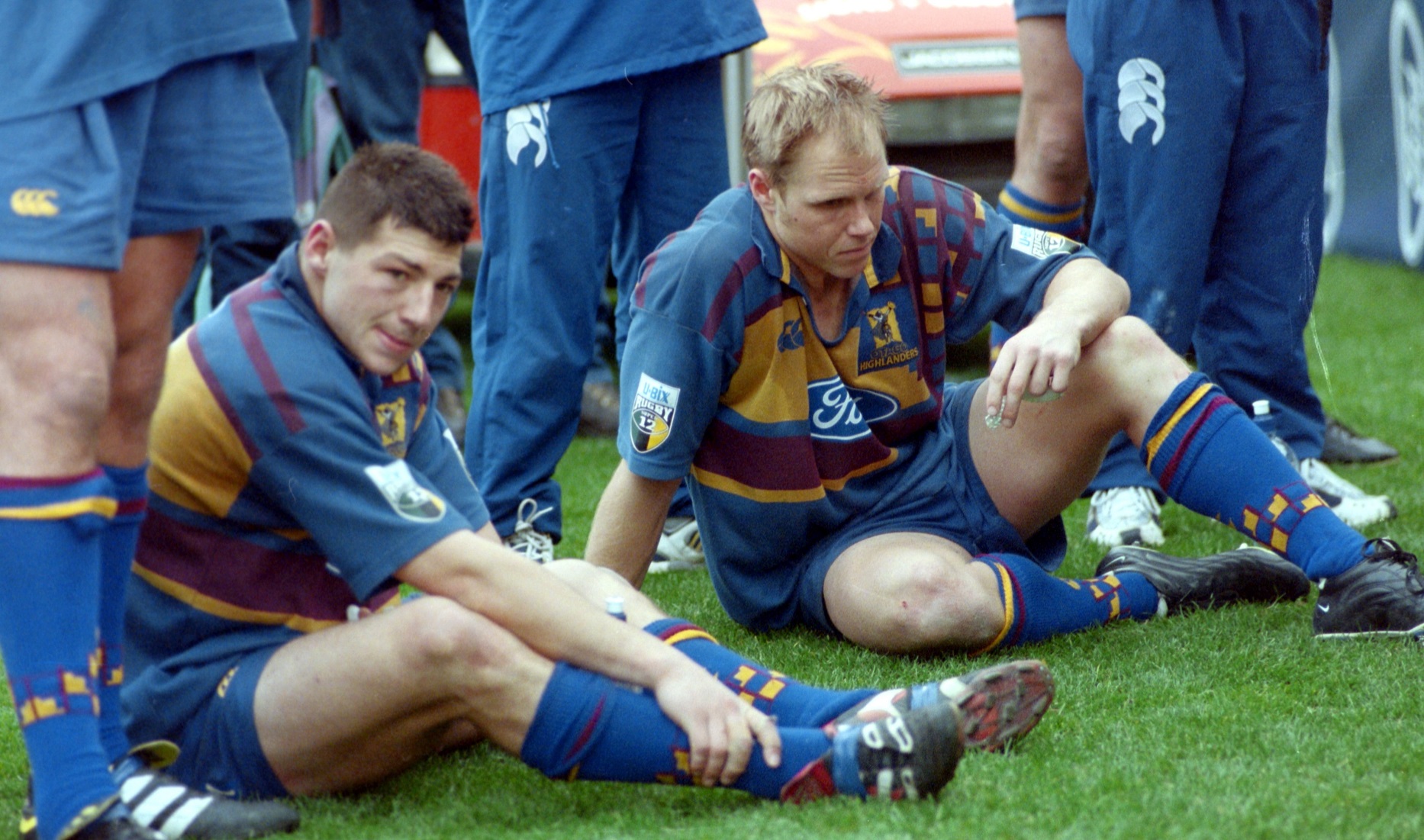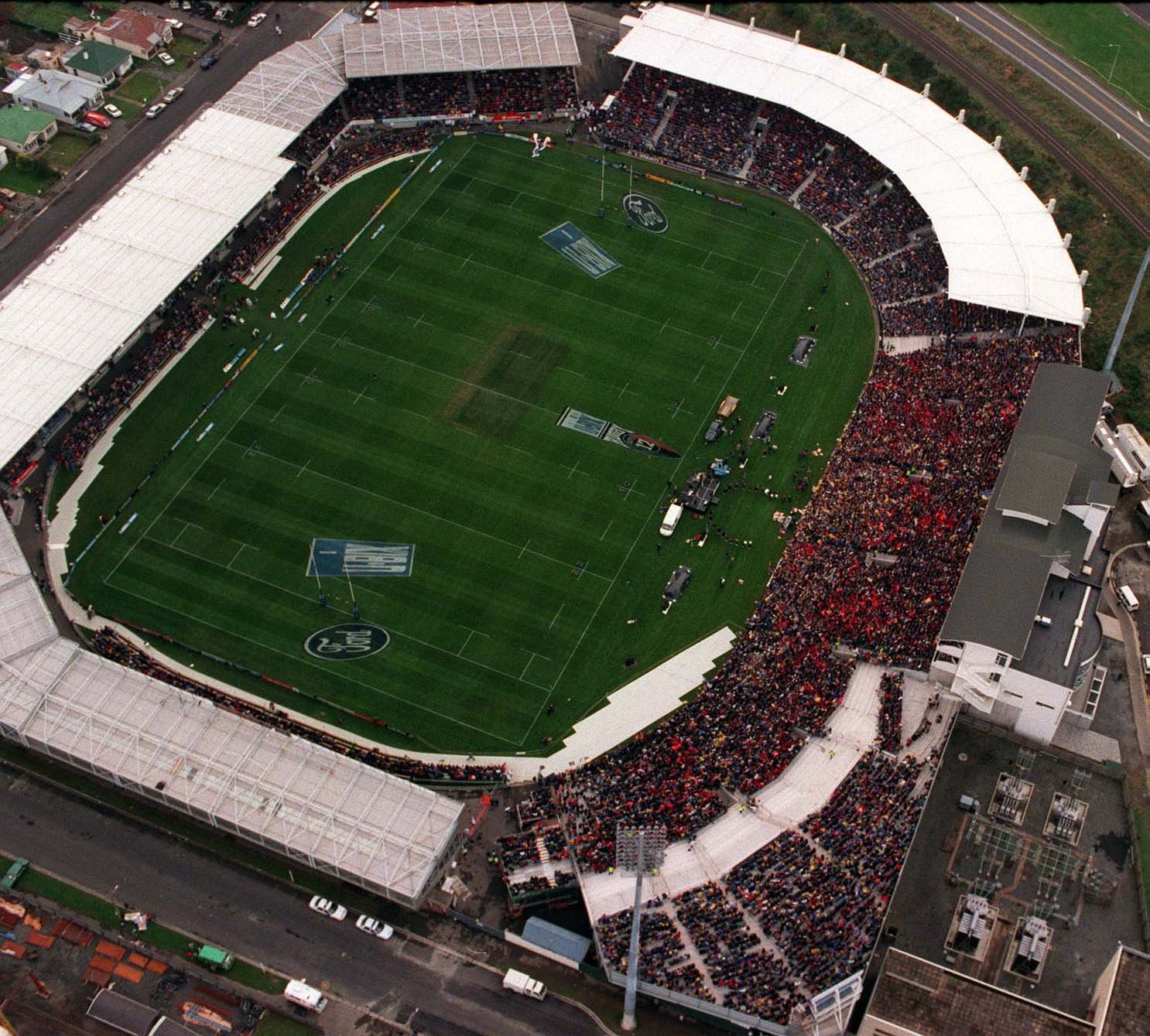
The season
Some call it the zenith of Super Rugby.
Before the numerous format changes, before the law tweaks, before the Sunwolves and the Jaguares and the Southern Kings and the Melbourne Rebels, there was just rugby.
Open, running rugby. Often played on sun-drenched afternoons in front of massive crowds. And proper professionalism had only just arrived, so not every player was a giant, and there were no defence coaches, meaning the product was way more exciting.
The Blues, coached by Graham Henry and including several greats of the game, had won the first two Super 12 titles, but the ominous stirrings of an Evil Empire had begun in 1998.
There was no real stand-out side in 1999.
The Reds, the Stormers and the Highlanders each won eight of their 11 games, while the Crusaders were in middling form during the season before a turnaround that started with Andrew Mehrtens kicking a late drop goal to clinch victory over the Bulls in Pretoria. That moment is better remembered for Mehrts turning to the crowd and giving them the fingers.
If the Highlanders had not slipped to a two-point loss to the Hurricanes in Wellington in the final round, they would have had home advantage for the semifinals.
Instead, they had to make the long journey to Cape Town, where they smashed the Stormers 33-18.
The Crusaders also had to travel, but only to Brisbane, where they beat the Reds 28-22 to set up an all-Kiwi final.
If you have forgotten — hey, 25 years is a long time — the game was marketed as the "Party at Tony Brown’s", a play on the Highlanders’ first five’s name based on a television advertisement.
The game
The Highlanders technically had home advantage for the final but that was hugely diminished by the fact they had to fly all the way home from Africa.
Still, they made a decent start in front of 42,000 crazed fans at the House of Pain, scoring the opening try after winger Brian Lima started a counterattack and finished off from a short pass from halfback Byron Kelleher.
Trailing 14-9 at halftime, the Crusaders had a couple of aces up their sleeve.
Mehrtens set up a try for Daryl Gibson.
Winger Afato So’oalo scored a stunner when he sidestepped Lima, flew down the touchline, chipped ahead and outsprinted Jeff Wilson to the line.
Mehrtens added a drop goal to ensure a try to Highlanders No8 Isitolo Maka was mere consolation.
Crusaders 24, Highlanders 19.
The Highlanders
They might just have dipped out on the title but this was arguably the greatest Highlanders team of all.
A young and vibrant front row was backed by two workhorse locks and an all-star loose trio.

One of the unsung heroes of the side was John Blaikie, who was part of the all-conquering Otago team that romped to NPC victory the previous year and formed the bulk of the Highlanders’ strongest XV.
"We kind of knew we could have a decent season on the back of the successful NPC campaign with Otago in 1998. We’d also probably exceeded expectations with the Highlanders in 1998 when we’d managed to get into the semifinals. We were unlucky not to make the final," Blaikie recalled.
"So we thought we had not a bad side, and we could be contending."
A bunch of players, among them captain Taine Randell, had revelled in the opportunity to taste success with Otago and the Highlanders after lurching through five straight losses with the All Blacks in 1998.
Blaikie vividly remembers the final weekend of the regular season when the Highlanders were within grasp of a home semifinal. The chips fell the wrong way, and they faced the gruelling trip to South Africa.
"That was frustrating. We could have finished first but we ended up third. We go to Cape Town and the Crusaders had Brisbane, and they were able to sort of come back and wait for us while we had that big trip.
"Going to Cape Town was such an emotionally draining exercise. We possibly weren’t expected to win.
"Ultimately, the effects of jet lag and possibly some extra celebrations over in South Africa may have been the difference in the end. We just ran out of puff a bit in the final."
Blaikie said most of the final itself was a blur. The So’oalo try might have been spectacular but he only realised how good it was when he saw a replay on television.
Afterwards, there were lots of extremely disappointed Highlanders under the old Carisbrook stand.
"Gutted. One of my biggest regrets.
"Cape Town had been such a big high. Then we had real contrasting emotions a week later with the massive low of losing."
Sixteen years later, Blaikie and his peers finally got to see a Highlanders championship when Jamie Joseph led his team to glory in Wellington.
"That was really emotional. It was, you know. It just felt ... yeah, we finally got there. Because it’s not easy to win a Super Rugby title. It was awesome seeing that team do so well."
Blaikie, along with Randell, now owns a small ownership share in the Highlanders.
The coach
Tony Gilbert will forever be revered in Otago and Highlanders rugby circles.
He guided one of the great provincial rugby sides to NPC success in 1998 and led the Highlanders to within a sniff of the Super Rugby title in 1999, before serving as assistant coach of the All Blacks, coaching in Scotland, working in strategy and development for the Otago union, and linking with the Highlanders again in a sort of wise elder role.
When he thinks about the 1999 season, he zones straight in on that final-round loss in Wellington that set in play the tricky semifinal draw.
"The hardest thing for us that year was just missing that game in Wellington. We could have come straight home but we had to fly all the way to Cape Town for the semifinal, and all the way home for the final.
"That was hard. I was pretty proud of the players and how they managed that."
Tired legs were clearly a factor in the final, Gilbert said.

"It was a tough ask. At halftime in the final, we were pretty tired. The forwards had worked really hard.
"It was a really tough 15 minutes after halftime, but I was so pleased with the way they held on and they didn’t let go."
The So’oalo try was really the only difference between the teams in the end, Gilbert said.
He recalls the team being fairly quiet after the whistle was blown.
"We were a little bit sad that we’d let our locals down at home — that’s natural for good people — but we were pretty proud of the season we’d had."
Gilbert enjoyed working with his assistant coach, Kevin Gloag, in 1999.
While Gloag preferred to burn the midnight oil, Gilbert was and is a morning person, so the pair ensured there was a coach on duty around the clock.
Super Rugby has had its ups and downs. Carisbrook does not exist. A crowd of 42,000 is unimaginable now.
Gilbert loved that late-1990s period but was reluctant to declare it the peak of the competition.
"It’s hard for me to say that. But it was a good time to be involved. We had a good team and we had good back-up from Highlanders people and the community."
The Highlanders’ peak came with the title in 2015, and Gilbert relished the moment he saw fellow coach Joseph celebrating with Nasi Manu and company.
"It was special for me. I just felt, you know, at long last.
"Jamie and his team had managed to do that little thing we hadn’t been able to do. I was rapt for the team but I was also personally quite chuffed."
Modern-day players and coaches talk regularly about being a "Highlander man".
All teams like to build that rather nebulous idea of culture, but Gilbert thinks there was and remains something special about his beloved Highlanders.
"I think so. I hear players talking about it, and they like the idea of the Highlander man down this part of the world.
"They almost feel the community is behind them automatically, as opposed to some bigger places sometimes."
1999 Super 12
Final teams
Highlanders: Jeff Wilson, Brendan Laney, Pita Alatini, Romi Ropati, Brian Lima, Tony Brown, Byron Kelleher, Isitolo Maka, Taine Randell (captain), Josh Kronfeld, Brendon Timmins, John Blaikie, Kees Meeuws, Anton Oliver, Carl Hoeft.
Crusaders: Leon MacDonald, Caleb Ralph, Daryl Gibson, Norm Berryman, Afato So’oalo, Andrew Mehrtens, Justin Marshall, Steve Surridge, Reuben Thorne, Angus Gardiner, Norm Maxwell, Todd Blackadder (captain), Greg Feek, Mark Hammett, Greg Somerville.












